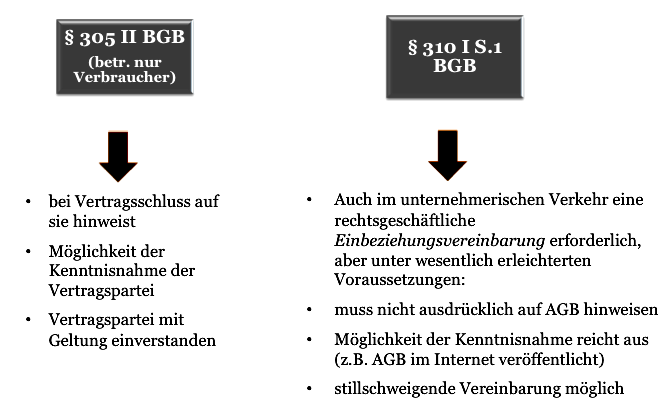LEGAL+ NEWS
General terms and conditions (GTC) affect everyone: whether commercial enterprises, which try to make their respective GTC the basis of the business relationship in their business dealings with each other, or private individuals, who are confronted with GTC in every situation in life – for example when boarding public transport, shopping on eBay or amazon or even when entering a department store. The importance of general terms and conditions is therefore immense.
With this in mind, I would like to try to provide a brief overview of this extremely important topic in this article:
What are general terms and conditions?
Sections 305 et seq. of the German Civil Code (BGB) contain regulations on general terms and conditions:
In detail:
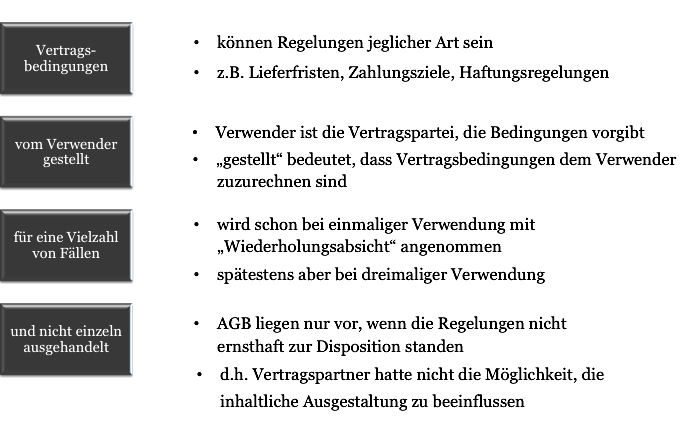
Why General Terms and Conditions?
AGB are mainly used for the following reasons:
- Simplification of the business process (e.g. reduction of the time required to negotiate the contract)
- GTC create uniform and detailed regulations for legal relationships in mass contracts (simplification of legal transactions)
- make it possible to further develop inappropriate laws through new regulations or to concretize undefined legal terms (e.g. if the law states a “reasonable” period, this can be precisely defined in the GTC)
- Often even indispensable if there are no statutory regulations for the type of contract
- Strengthen your own legal position in relation to the respective contractual partner
Inclusion of general terms and conditions
In order to be effective at all, general terms and conditions must be effectively included in a contractual relationship:
Limits of admissibility (content control) of general terms and conditions
The user cannot make unlimited provisions (in his favor) in the GTC. The law provides for very specific prohibitions of regulation in this regard, particularly when used in relation to consumers. However, T&Cs between entrepreneurs are also subject to a so-called content review, in particular the prohibition of unreasonable disadvantage to the contractual partner also applies here. The following chart provides an overview:
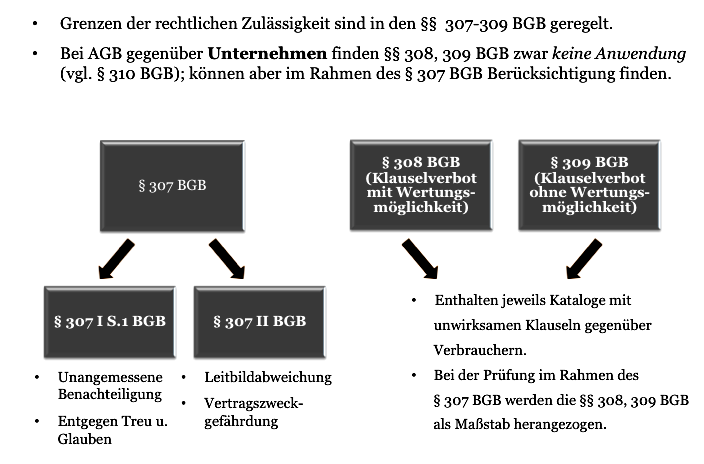
Accordingly, the following principles in particular apply to the limits of the admissibility of GTC:
§ Section 307 I sentence 2 BGB Transparency requirement
= According to this, an unreasonable disadvantage to the customer can also result from the fact that a GTC clause is not clear and comprehensible
§ 305 c BGB surprising clauses
= GTC clauses are not part of the contract if they are “so unusual that the user’s contractual partner need not expect them”
§ 305 b BGB individual contractual agreements take precedence over the GTC
= Individual agreements between the parties shall always take precedence. GTCs that conflict with such individual agreements have no effect.

Conflict of general terms and conditions
In business transactions between entrepreneurs, it is more the rule than the exception that both parties attempt to make their respective GTCs an integral part of the contract. The question then arises, particularly in the event of conflicting provisions, as to what should then apply. The following diagram illustrates the case where neither party has considered the possibility of such a conflict in their respective GTCs:
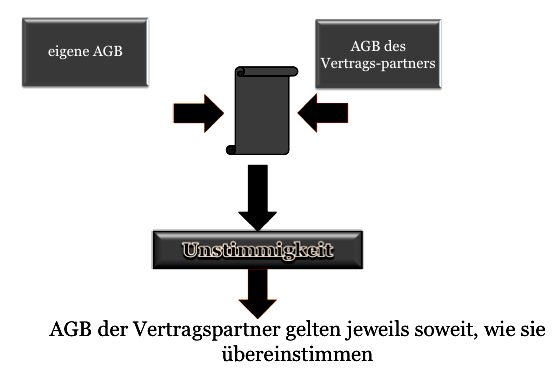
The situation is different if so-called defense clauses are used:
Defense clause: “These General Terms and Conditions of Purchase (Terms and Conditions of Purchase) shall apply exclusively; deviating, conflicting or supplementary General Terms and Conditions of the Supplier shall only become part of the contract if and to the extent that the Purchaser has expressly agreed to their validity in writing. This requirement of consent shall also apply if the Purchaser accepts the Supplier’s services without reservation in the knowledge of the Supplier’s General Terms and Conditions of Business .”
In the event that one or both parties have included a so-called defense clause in their GTC, the following applies:
Variant 1 (one party has included a defense clause)
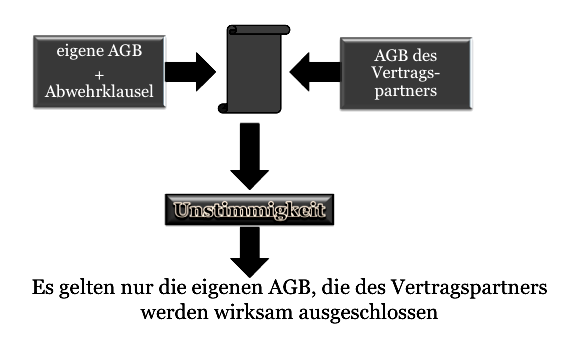
Variant 2 (both parties have included a defense clause)
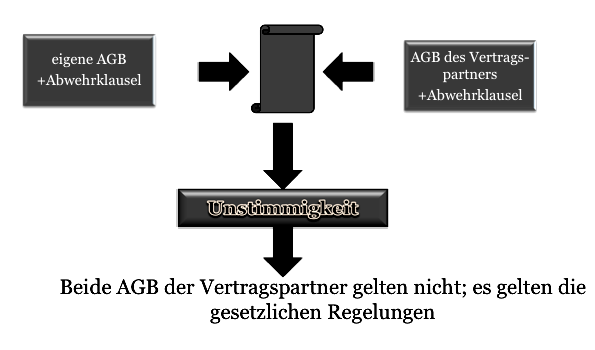

LATEST ARTICLES

On the bias of judges in civil proceedings: If judges do not read a party’s pleadings, this can justify a motion for recusal!
Following on from my overview article on the application for recusal pursuant to Section 42 ZPO, I would like to report on an interesting ruling by the Higher Regional Court of Karlsruhe. According to this ruling, a judge’s failure to read the pleadings submitted by a party can give rise to concerns of bias. In the case in question, a judge had overlooked an application for recusal directed against him, as he had forwarded the pleading containing it unread to the opposing party for comment. This violates the so-called duty to wait pursuant to Section 47 (1) ZPO, according to which only “official acts that cannot be postponed” are permitted from the filing of an application for recusal until it has been dealt with.

BGH on the legal consequences of thwarting evidence
In legal disputes, it often happens that one party makes it difficult for the opposing party to provide evidence. In these cases, the question then arises as to whether and, if so, with what legal consequences it can be assumed that evidence has been obstructed.

Guide to procedural law: Easier way to claim damages for exhaust gas manipulation – On the BGH ruling of June 26, 2023 (Ref. Via ZR 335/21)
This article attempts to classify and evaluate the current ruling of the Federal Court of Justice (BGH) of June 26, 2023 (Ref. Via ZR 335/21) on the subject of compensation for damages due to emissions manipulation by car manufacturers.
CONTACT

+49 (40) 57199 74 80
+49 (170) 1203 74 0
Neuer Wall 61 D-20354 Hamburg
kontakt@legal-plus.eu
Benefit from my active network!
I look forward to our networking.
This post is also available in: DE
